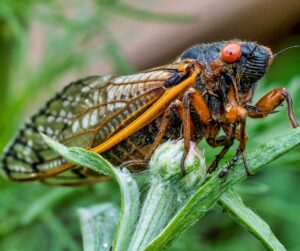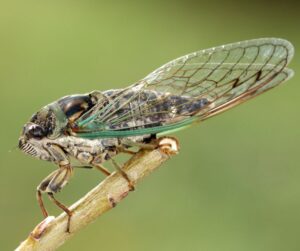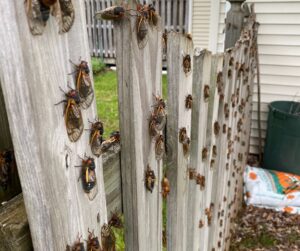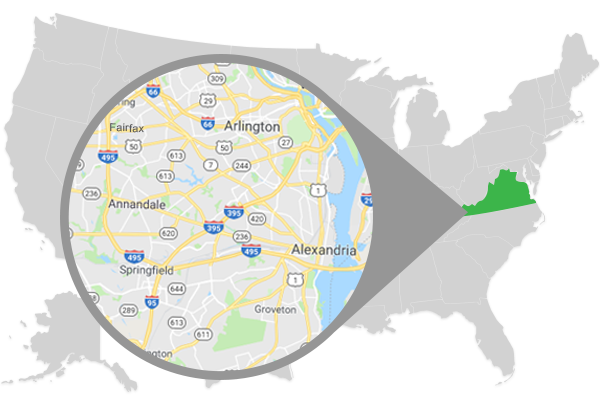
You’ve probably heard about it in the news or on social media: this year is going to mark the rare occurrence of two cicada broods emerging from underground at once. But will we see these noisy insects in Virginia? And what even ARE cicadas anyways?
What Are Cicadas? | Yearly Cicadas vs Periodical Cicadas
Cicadas are large, loud insects that are easily recognized for the loud chorus of buzzing sounds they produce during the late Spring and early Summer months. There are two main categories of cicadas: periodical cicadas and yearly cicadas.


What Damage Can Cicadas Cause?

Are Cicadas Dangerous?
Cicadas are not dangerous at all! Cicadas do not bite or sting, and they can be handled by humans.
What IS the 2024 Cicada Double Brood?
The 2024 Cicada Double Brood is a phenomenon where the annual cicadas will coincide with both 13-year cicada broods and 17-year cicada broods in some areas across the country. There will be an exponentially higher number of cicadas emerging in late April through May, and an occurrence of this double brood will not happen again for another 221 years.
The two broods emerging this year is the 17-year brood XIII and the 13-year brood XIX. The last time XIII emerged was 2007, and the last time XIX emerged was 2011.
Are We Going To See Any Cicadas in Virginia?
While 17-year cicadas affect the Northeast and Midwest, the 13-year cicadas affect the Southeast and the Midwest. Brood XIII will be seen in Northern Illinois, Southern Wisconsin, Eastern Iowa, as well as Indiana and Michigan. Brood XIX will be seen emerging in Illinois, Missouri, Arkansas, Iowa, Louisiana, Georgia, North Carolina, South Carolina, Tennessee, Kentucky and some parts of Southern Virginia.
While some areas in the southern part of Virginia will see the 13-year cicadas emerge, Virginia will not have any 17-year cicadas, so we will not be experiencing the double brood. The double brood emergence will be concentrated in the areas where both broods overlap, like Illinois. However, the emergence of Brood XIX in Virginia can have some interesting effects on our local ecosystem.
Cicada Influence on the Ecosystem
Millions of cicadas emerging across the state of Virginia means an increase in the local food supply, and if you have a bunch of cicadas hanging out in your yard, they can end up bringing insect predators as well as opportunistic critters like squirrels, raccoons, bats and skunks. If these nuisance wildlife begin spending more time on your property due to the new buffet of cicadas, they may begin seeing your home as a viable place to build their nests.
Cicadas can also bring the attention of the Eastern cicada killer wasp to your property. Cicadas are the main source of prey for these insects, and the females are known to sting people and pets when they feel threatened.
Wildlife Removal and Pest Control in Virginia
While pesticides are both ineffective and unnecessary for cicadas, if you have cicada-killer wasps, raccoons, skunks, squirrels, bats, or any other type of pest or wildlife attracted to your property by cicadas, Summit Environmental Solutions can help. We offer the best in wildlife removal and pest control services in Fredericksburg, Alexandria, Arlington and Fairfax. Call us today to get started at (703) 520-5868 or fill out a contact form!




